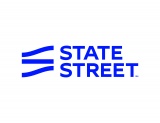
Company name : STATE STREET
Activity sector : Financial and insurance activities
Company category : Large company
Description of the action
At Luxembourg Diversity Day on 12 May 2016, we introduced LGBT awareness into our workplace by hosting a series of events throughout the day:
This one-day event, which aimed to create a strong foundation for LGBT awareness, was followed by:
Context
Creating an inclusive environment for all employees - including lesbian, gay, bisexual and transgender employees - throughout our company is an integral part of State Street's overallinclusion and diversity strategy.
Objectives
State Street’s goal is to ensure that every employee feels valued, engaged and respected in the workplace.
Approach
At State Street, we believe the way to drive diversity andinclusion is for it to be business-driven and linked to the strategy of the organization as an integrated part of our business decisions and activity. In 2016, we launched the European Diversity Council, comprising senior leaders from across our European business and locations. The Council is responsible for driving an integrated, business-driven Diversity &inclusion strategy.
In the last year, the Council has conducted data-driven, in-depth research to determine how to influence diversity in each of our top six locations, including Luxembourg, rather than using a “one-size fits all” approach. As a result, we’ve identified diversity priorities for each location with the local country leadership team being held accountable to drive the action plan forward. Our emphasis on LGBT awareness was part of the focus for Luxembourg.
Impact
State Street is committed to broadening the diversity lens beyondgender diversity, focusing on theinclusion of LGBT people in the workplace. Our Global Ally Program aims to raise awareness and educate all our employees about our LGBT community. We also want to ensure that we support our LGBT employees and create an equal workplace. We do this through the following means:
« To do »
Aligning a top-down approach with the work of our employee networks is key to the success of our Diversity & Inclusion program. Leadership alone cannot drive a culture change. We support this business-driven approach by constantly working to build and grow our employee networks, and work with them to align their activities with our identified challenges and priorities. We believe that a business-driven, network-supported approach is practical and sustainable into the future.
« Not to do »